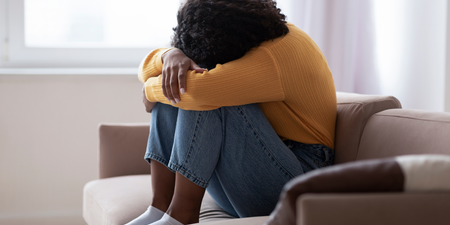According to the latest statistics from the World Health Organisation, over a fifth of women (22%) in their early twenties are currently living with an eating disorder.
In Ireland, nearly 5,000 calls are made to Bodywhys Ireland – The Eating Disorders Association of Ireland, per month, showing there’s a real need to start talking and understanding the role it is playing amongst our mothers, sisters, friends and families’ lives.
Bulimia nervosa is an eating disorder that is characterized by frequent episodes of binge eating large amounts of food in a short time, and following this with compensatory behaviours of weight control. This is most commonly recognised as self-induced vomiting, but can also be controlled through laxative abuse, diuretics medication or excessively exercising.
Bulimia tends to develop in late adolescence or in early adulthood and it affects females more often than males. Bulimia commonly begins with a person’s concern with their body size or shape, but can also be used as a controlling mechanism by people under stress.
Usually individuals suffering from bulimia have low self-esteem, but the condition can be harder to trace than other eating disorders as symptoms can be more difficult to recognise.
What symptoms should you look out for if you’re concerned somebody is suffering from Bulimia?
Many people with bulimia maintain a normal body weight. As a result, the disorder can sometimes go unnoticed and untreated for a long time. The longer the binge-purge cycle remains in place, the harder it becomes to overcome it.
If you are concerned your own behaviour or think a close family member or friend is showing signs of bulimia, it is very important that the person suffering the condition seeks medical help as soon as possible.
The symptoms of bulimia nervosa can include:
- Eating uncontrollably in binge episodes on a frequent basis
- Self-induced vomiting or abusing laxatives/diuretics in an attempt to lose weight
- Preoccupation with, and craving for, food and eating
- Feeling out of control at times
- Depressive symptoms or emotional instability
- Dehydration
- General digestive problems (cramps, wind, constipation, diarrhoea)
- Poor skin condition
- Headaches, tension
- Irregular periods
- Using the bathroom frequently after meals
- Excessive exercising or alternating binges with periods of very restrictive dieting
- Physical symptoms from frequent vomiting – dental problems, sore throat, swollen glands in neck and face, indigestion etc.
All eating disorders are complex problems, and although experts do not really know what causes them, there can be a list of factors that can contribute to developing an eating disorder. These can be a mix of family history, social factors, and personality traits. You may be more likely to suffer from bulimia if:
- Other people in your family have difficulty maintaining a healthy weight, or have had an eating disorder in the past
- You have a job or do a sport that stresses body size, such as ballet, modelling, or gymnastics
- You suffer from anxiety, or low self-esteem
- You are dealing with stressful life events, such as divorce, moving home, bereavement or have difficulty dealing with personal issues
How can you treat Bulimia Nervosa?
Without treatment, this “binge and purge” cycle can lead to serious, long-term health problems. Acid in the mouth from vomiting can cause tooth decay, gum disease, and loss of tooth enamel. Any type of purging can lead to bone thinning (osteoporosis), kidney damage, heart problems, or even death.
Treatment for an eating disorder normally involves a combination of psychological and medical therapies to help improve symptoms. If you or someone you know has bulimia or another eating disorder, it is vital to seek professional help.
Eating disorders can be dangerous, and willpower alone is often not enough to overcome them. Be careful not to confront somebody who may be suffering from this condition, but to talk to them in a trusted environment that will not put them under further stress.
Treatment can help a person who has an eating disorder feel better and be healthier, but this must be done in a controlled, professional environment.
For more information on dealing with Bulimia Nervosa, book in an appointment with your local doctor, or alternatively contact Bodywhys Ireland – The Eating Disorders Association of Ireland for a list of support services and advice.
Alternatively, check out Mental Health Ireland for more information.




















































